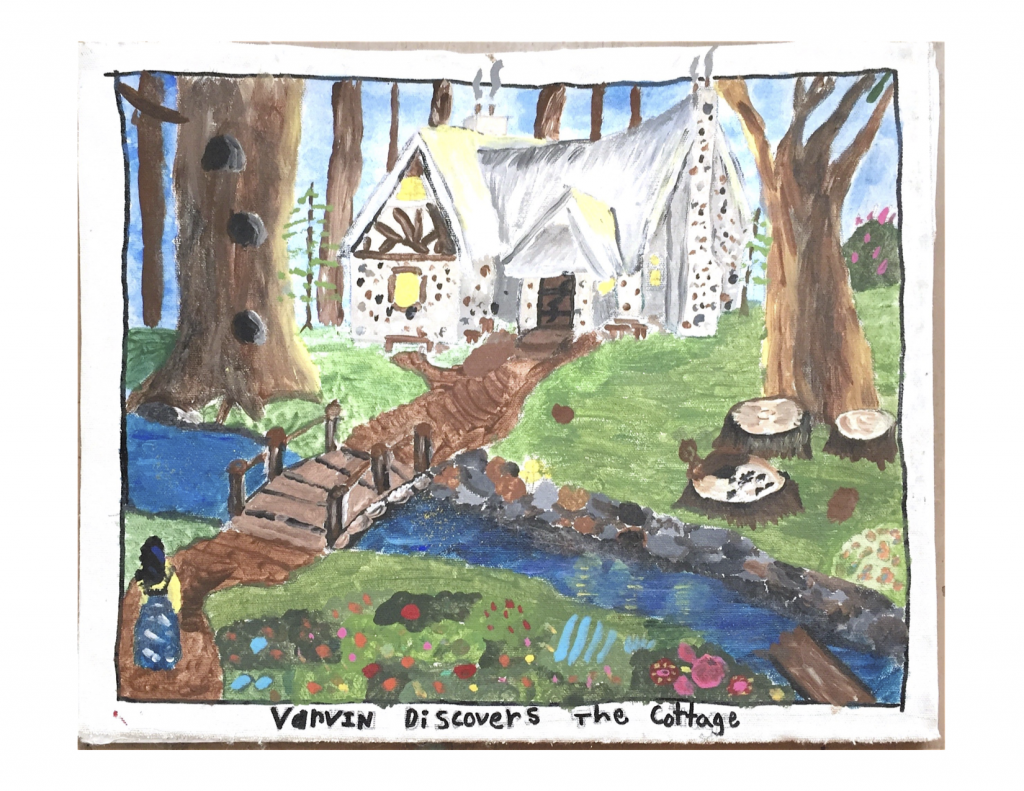“Homeschooling” is a word most people are now familiar with. It’s not actually a word that I like all that much. We’re not really home all the time – we’re at jobs, sports, events, libraries, with friends and family a great deal – and the way we learn doesn’t resemble school – we don’t have a school room or charts up on the wall and we talk about what each person’s preferences or goals are and learn pretty naturally. So neither part of the word “homeschool” appeals to me, but for the sake of not being too difficult😉, I’ll use it in the title although I’ll use “ home education” when I can. It still only focuses on the “home” part but I think it covers a broader base of people and I like it a bit better.
Home education is now a fairly well-known way of living and learning but there is a great deal of curiosity and almost mystery surrounding it. At the very least, there is a lot of misunderstanding. I often see online references to homeschooling as a “trend” or a “phenomenon” … wow! Lists abound debunking homeschool myths and there are no shortage of opinions on the subject.
It’s sometimes a complicated conversation to have and concept to understand because home education is wide-reaching and regardless of what style you find yourself drawn toward, it flows into all aspects of life. There aren’t quick, easy answers to define it.
It’s also tricky to discuss if those being asked aren’t clear about the intention of the question. If someone is just asking a question to be polite, a quick answer usually does the trick. If someone is asking to passive- aggressively make the point that they think what a family is doing is wrong, it’s harder, but a short answer and redirection is often good then as well. If someone is genuinely interested and curious, then it might be helpful to take some good time to chat and help them understand better. This is written with these third people in mind🙂.
So how we can we better understand what home education is? Well, here are some thoughts …

Families choose home education for many different reasons and often a combination of reasons. It is often proactively rather than reactively chosen, or it can be chosen for BOTH proactive and reactive reasons. While it is true that many people have had difficult experiences or just don’t like aspects of the school system, many really enjoy the time spent as a family and want to have a greater degree of agency and choice around how their time is spent.
Home educating families don’t spend ALL their time together. There are various activities and opportunities that might take them in different directions, so when people say, “I could never be around my kids all day, every day,” they may not understand the individual lessons, community and social options, time spent with extended family, paid or volunteer work that many people do that creates periods of time that they are away from one another.
That all being said, often people find that when they are all living and learning together, they develop a rhythm that actually makes being together much easier. Kids tend to have their own projects on the go, things they want to do, places to go, etc and everyone sort of naturally gets into a familiar rhythm. When you’re learning together, there’s a different sort of connection from shared experiences that often happens which often translates into more enjoyment being together. It can be a cycle – the more time spent together, the more common experiences they have, the more time you enjoy spending together.
The other piece that can happen is that kids are feeling connected and have their needs well met so because their “needs bucket” is full, they are often quite settled and spend lots of time quite independently pursuing their own things.
Let’s be clear, though, that young children almost always need lots of time and attention and that children vary widely as far as how much they like to be on their own versus with parents so yes, any way you slice it, it’s an investment of time.
Families often need to be very resourceful to home educate but it’s not impossible like many people think! It is untrue that everyone is upper-middle class and can afford to easily live on one income. It is sometimes the case but more often than not, families on one income need to be quite ( sometimes very!) resourceful to get by and find ways to do that.
Some families have both parents involved in paid work. Although many, many families have one full-time parent while the other has full time employment, it is also quite common for one to work part-time, while the other works full-time. There are actually others who both work full-time and work opposite each other or have support from grandparents, older siblings or other families. Families run the range of these situations depending on the ages and stages of their kids, life circumstances, etc.
There is great diversity and community. There are large families, small families, single- parented families, wealthy families, poor families, middle income families – rural, small town, urban, suburban, artsy, sporty, religious, secular, families of different races – you name it. Amazingly, despite the differences among people – socioeconomically, philosophically, racially, culturally, religiously- it is a population that works really well together and manages to respect differences in a way I’ve seen nowhere else. The best part? There is also incredible support and networking which can include everything from resources and ideas to trading skills and childcare.
Home educators don’t have it all figured out no matter how many years they’ve been at it. It may seem like it and maybe there are some who do, but for the most part, there is an ongoing thinking through, exchanging of ideas and figuring out. Each age is new, each child is different and community opportunities both arise and disappear.
Families see learning as being outside of government curriculum and some see it as being outside of curriculum in general. The common question that tends to be asked here is in regard to how a parent can “keep up to date with what they need to learn?” meaning keeping up with your province’s or state’s standards and course of study. One answer to this is that I’ve never met a home educating family for whom that is a true goal. I actually haven’t and over the last 16 or 17 years, I have met hundreds and read stories of many more.
Home educating families see learning as being much broader and deeper than what their particular government may have put in place. Their focus reflects everything from their child’s learning style and interests, to their family life, to their culture and religion, to the opportunity to learn from the world and life as a whole. While some families have a bigger focus on the concepts of “keeping on track” than others, I haven’t actually seen anyone diligently pursuing their particular local board curriculum year by year. The exception to this might be someone who has their child home due to illness, bullying or family circumstance and is keeping in step with school with the plan that the child will return after a period of time. Brand new homeschooling families might start off this way, but people often move to other curriculum of their choice or no curriculum at all.
The goal for many parents is not necessarily to imitate the school process. Many parents (even people choosing a traditional method) don’tneed to do a lot of grading papers. When you spend a lot of time together, you see the learning pretty clearly. Conversations after books, movies and time spent at a museum or event highlight each person’s experience in such a clear way that a field trip checklist or series of multiple choice/ short answer questions are not only unnecessary, they seem kind of random, given the deep conversations you’re having (well, sometimes deep -sometimes one- off comments or questions with a quick answer demonstrate just as much).
Just to delve a bit deeper here, this includes concepts like Gym/ Phys.Ed and recess. Yes, there are home educators who have gotten questions about how they handle recess. It seems like an odd question to a person who has been home educating for any period of time but I’ve heard it asked enough and have been asked enough myself that it must be a common enough curiosity. So, basically, breaks happen pretty naturally either with meals, heading out somewhere or when a family or individual child are needing a change or a rest. Many kids participate in a range of sports and unstructured physical activity and often movement is a very natural part of their life.
As far as keeping up as the level of learning gets higher, there are a few possible answers to that, depending on the style of home education. If a family is either following or pursuing a type of traditional homeschooling, the parents will be refreshing their memory incrementally and likely reviewing material ahead of time as the child gets older and moves upward on their learning. Essentially, if the child or teen is expected to learn it, it’s likely not beyond the capacity of the parent to learn it or renew their knowledge/skill. If children or teens are learning in a more self-directed way, then either the parent is quite engaged and supportive and so likely has learned a lot about the topic the child/teen is so passionate about it or the child/teen is learning very deeply and independently regardless of the parent. A third possibility is that by the teen years, many have chosen external courses, either online, in the community or through curriculum and are learning quite independently. Regardless of style, all parents can help find opportunities for their kids when the kids show an interest in something the parent isn’t strong in. A keen and supportive parent is much more important than one who has all the answers.
Families don’t necessarily see the traditional school year the same way most of society does, but they might:).Both life learning / unschooling families, as well as more traditionally home educating families, might have a fairly mainstream rhythm as far as the year goes, with vacations or a sort of changing pace during holidays. Others might have a more unconventional calendar, with small breaks in regular activity throughout the year. Travelling or visiting places during the “off hours” or “off season” is a great benefit. There is so much more time to explore and have a good look at things when the crowds aren’t there!
Home education is absolutely not perfect. Oh goodness, no. While stories of prodigies, high test scores, ideal family life and picture perfect crafts abound, there are many of the same difficult times that everyone has – shortages of patience, tricky finances, family difficulties and times of wavering around in educational approach are also a common reality.
Despite a decent degree of evidence, home educated children do not necessarily do better on standardized tests. They sometimes do but here’s the thing – although it’s handy to have statistics about solid outcomes, I haven’t personally met anyone whose goal is for their child to be smarter than the general population. I genuinely haven’t. I have met families who have quite a strong academic bent but their vision would typically be helping their child develop to their own individual academic strong point rather than focusing on creating a super genius as portrayed in some books and movies, lol. For other families, goals around everything from self-confidence and determination to personal faith to family connection are stronger than academic achievement.
Many home educating parents believe in choice of education and that includes public or private schools. They obviously favour home education for their own family or particular situation but there are families who have a child who has decided to go to school or remained in school when others come out to homeschool. They continue to pay their public education taxes either way.
Following on the heels of the last point, however, home educating parents have the same right to opinion and free speech as anyone else. It is absolutely alright to not be comfortable with the school system. In this world of being afraid to speak out or hurt feelings, it can be hard to speak out about your experience or opinion but thank goodness some people overtly do. It has led to great thinking, conversation and a broader base of options.
Home educating families tend to be free thinkers. I know, in democratic countries we all see ourselves as free thinkers and certainly to a degree we are, but this is kind of on a different level. Think of it as levelling up or digging deeper into free thinking – whichever of those analogies makes sense. Once you’ve watched deep learning and growing happen outside the system, many things that just seemed at least somewhat normal before, no longer do, in the school system and beyond. People’s critical thinking skills get a good sharpening as they usually begin to see more opportunity in life in general, not just in education specifically.

So, let’s delve into the BIG, concrete questions – the ones every home educating family has answered or struggled to!
Although these tend to be “one-liner” questions, they are actually very hard to answer! There may be a few reasons why they are so hard to answer:
1.They often seemingly come out of nowhere so parents (and children – they get asked a lot of the same questions) are not necessarily prepared or in the mind space to answer in that moment. These questions often pop up in the midst of another activity or conversation entirely so can seem wildly out of context, lol;).
2. Answering some questions, particularly when they’re not in the context of respectful conversation, can seem like a potential invasion of your child’s privacy. That is not necessarily the intention of the asker. Often people are wanting to learn and understand. It’s just sometimes difficult to explain specifics of kids’ learning, emotional or social processes without offering a lot of detail. For example, if asked a question about reading proficiency, social life or relationships, a classroom teacher could give a fairly big picture explanation that is general in nature – it spans 25-30 kids in a class, multiplied by possibly years of teaching. As a home educating parent, it’s harder to answer those questions well without comparing siblings, your kids with other families, or going into more detail than your child might want you too. Most families know lots of other home educating families so that does help generalize it a bit.
3. These topics are actually pretty big. They are not quick, one sentence answers. Not really. They are things that parents think and read and pray about. They talk to other parents and research and talk some more. They are often multi-faceted and intertwined and very difficult to answer quickly.
4. The parents’ own confidence is either at a low point in relation to one of these questions or they are quite new to home education and are still getting their feet wet, getting used to all the questions and ideas.
So here they are …
Are You a Trained Teacher?
Quite a few parents are, but you know what? Generally speaking, they aren’t any stronger at facilitating learning than other home educating parents. Many of them say so themselves. I’ve heard a few former teachers say that home education is such a different process that it required them to do a lot of rethinking. The process of learning that happens is very different than a classroom. It’s a walking alongside of a single child or a small number various rather than a large group situation. There are large group situations like outings, project fairs or Track and Field, etc, but in everyday learning, it’s a very individualized, relationship-based living and learning. Thousands of healthy, happy, intelligent homeschoolers have grown into adults without parents who have teaching certification.
There are a couple of pieces here as mentioned earlier …
If families are doing a more traditional style of learning, parents relearn (or in some cases, learn for the first time) all kinds of things as they go along.
In the case of an unschooling or natural learning process, parents learn as their kids’ interests develop or do some looking into ideas to strew or suggest. They are always learning and growing themselves.
Home educating parents of all kinds seek out a LOT of education and support for themselves and give back to one another in resources, encouragement and ideas. There are conferences, books, articles, local support networks and essentially all home educators a actively involve themselves in this learning. They clock hours and hours of learning and reflecting how to facilitate the best education and family life that they can and sharing their ideas with others.
How are your kids socialized?
Ah, so this what is known as the “S” word in home education circles of any type or stripe. All families answer this question at one time or another. This question is both simple and complex. The most straightforward way I can think about this might be to say that socialization involves interacting in healthy and effective ways with people of all ages and personalities in many settings and situations.
I’m actually going to go out on a limb here and say that home educated kids excel at healthy socialization. They usually have ample opportunities to do exactly those things mentioned above. They interact with grocery store clerks, neighbours, grandparents, siblings, sports teammates and friends both of their own age and other ages and because they have ample time for calm adult modelling in these interactions, they often relate quite calmly and maturely in each of these situations. Are there some kids who are a bit odd socially? Sure. Are there some school kids who are a bit off socially? Yes, and that’s OK too. It’s alright to be different and the fact that one of the most common questions that people have is about socialization and whether kids will “fit in,” speaks volumes about our society’s values. While we want kids to be respectful to others within the general flow of society, “fitting in” is overrated. It’s not particularly interesting. Fitting in doesn’t change the world. So, yes, most home educated kids interact with others effectively and respectfully and can also simultaneously be comfortable with being themselves.

How Will They Learn To Deal With Adversity and Bullying? Will They Be Too Sheltered?
Well, adversity simply happens in life. Pets pass away. People get sick. Loved ones pass away. On a more minor level, special belongings get broken, siblings and friends sometimes don’t share, there isn’t always money or time for everything we want, lines at the store or zoo can be long, siblings have doctors appointments that mean looong, crowded waits in the waiting room, sometimes we’re really interested in learning something and it’s very hard work and takes a long time … and on and on. Adversity is the stuff of life for all of us and it’s no different for home educated kids. It could be argued that sometimes it strengthens us and helps us grow. It’s part of being human.
Bullying is a different animal entirely. I don’t believe being bullied strengthens us. I believe it hardens us. We know this inherently – it’s why society aims for kids to have a healthy childhood free of abuse and mistreatment. We know what can happen to their psyche over time when they are systematically abused or picked on. It’s why there are so many anti-bullying campaigns and books and anti-bullying assemblies at schools themselves. Nobody is aiming for their child to be bullied so that they will be stronger. As adults, we know how we feel if we are disrespected or bullied by other adults. We know the feelings of confusion, anxiety, anger misdirected at other people, the constant surge of adrenaline as we sort out our unfortunate choice between “fight” or “flight.” It is emotionally, mentally, spiritually and physically unhealthy to stay in a state of being disrespected. As an adult, we don’t have to stay in a job, committee or friendship that is making us unhealthy. We might need to be resourceful and patient to find a way to move on but we aren’t legally forced to be there. We don’t have to sit near the person who bullies us day after day and in some cases year after year as many children do. When an adult stays in a situation where they are disrespected, they are considered weak and unhealthy. When a child does, because they have no other option, they are considered resilient. It’s not the type of resilience in their children that most home educating families are aiming for.
There is another type of resilience though. It develops by being well anchored and sheltered until a solid foundation and sense of self develops and home educated kids have this kind of resilience. They are generally very solid in who they are so they actually tend to be less affected and have healthier responses to bullying or shaky social interactions when they encounter them.
Picture a seedling being planted and needing to be physically supported as it grows into a sapling and then a young tree. Gradually the supporting structure can be moved away as the tree becomes bigger, stronger and well-rooted. There may some times where a high wind, or even a storm comes up, and it requires some extra protection for a while again, even when it’s a full grown tree, but overall, it grows into a wonderfully strong tree that even has the flexibility to bend a great deal without breaking. That is the kind of resilience that home educating families are fostering.

How Will They Learn To Read and Do Math?
Home educated kids, like many kids, have rich home and community environments. They are often surrounded by books, games and all kinds of ideas and conversations. Language and math are everywhere! In music, on signs, in bedtime stories and rhymes, in counting natural objects, cutting a pie or looking at the clock.
Families who have a life learning/unschooling lifestyle partner with their kids as their kids are ready and in the way that works for them. Kids will learn to read and develop mathematical skills because they will be either be interested or will have a need to, whichever comes first, and usually it’s a combination. They usually have an abundance of materials and resources available, both formal and natural.
Families who use a more prescribed form of learning/ teaching have an enormous range of styles and material to choose from. There is more curriculum available for different learning styles than there is time to try! They have the freedom to choose what suits an individual child.
Regardless of a family’s philosophy of learning, individual or small group learning actually has the significant benefit of readiness and one to one time. The learning also happens in context with the rest of life so the learning that’s happening together will be reflected in other ways which helps parents have an awareness of how they might help deepen it.
Will They Be Prepared For the Real World?
Yes, because they are already living in it. They are often with parents on daily errands or possibly helping in family businesses. They stand in line at stores. They wait while other siblings or parents have doctor and dentist appointments. They help neighbours. They often help with extended family. They participate in all kinds of activities and teams. They make things. They fix things. They often find part-time work or entrepreneurship relatively young. They can have a great deal of ownership and responsibility over their learning and time so they develop just that – ownership of their actions and directions and responsibility.
There are also variations of the the “real world.” Some things we just need to adjust to but in life, people create large parts of their own realities. Someone with a highly driven personality usually creates a high action, stimulating life for themselves or gravitates toward a job or living situation that fits them. A person who enjoys a slower pace moves in a direction that works better for them.
A few more pieces to ponder…
Children learning and growing up in the context of family, community and their own interests is as old as life itself. It’s not nearly as new a construct as compulsory schooling. Many of the very things that students learn in school were ideas and structures of knowledge that were predominantly discovered or invented outside of or in the absence of school. The languages children study in school developed and evolved over time due to need and natural circumstances. The physics of things or learning about maps/ cartography that we fit into categories such as science and geography were discovered or developed because of either need or interest/ fascination- the two big driving forces that lead any of us to deep learning. The art and literature created through the years, came about through individual passion, sometimes mentored by another person or collective of peers but likely not as an assignment in a compulsory class. So, the very things that are taught, assessed and graded in schools and deemed most important likely came about outside of school. To put it another way, schooled children are learning about the discoveries and inventions of unschooled or, at least, unconventionally schooled people by today’s standards.
Whenever society stops doing something that is naturally done in an earlier period of time, it almost requires a “relearning” of that particular, older thing and an “unlearning” or “letting go” of the more recent, common development.
For example, for years, many people grew large amounts of their own food and sewed their own clothes but now people often take courses or read books or online tutorials to do these same things. Maybe home education is similar. In order to understand natural ways of family, community and natural learning, we have to read and discuss, research, support one another and mull it over.
So, home education isn’t really that crazy. It’s a movement that’s actually grown quietly, but very continuously, with a seriously successful market (curricula, conventions, community memberships) and support network (local support groups, co-ops, social media) alongside it. It’s researched, proven, practical and well thought through.
In my favourite words of Pig Pen in “A Charlie Brown Christmas” (and I mean this for the whole home education community, not just myself, lol) … “Sort of makes you want to treat me with more respect, doesn’t it?” 😉

Enjoy this post? Please share.


Hi Erin. Really great overview of homeschooling. I love that Pig-Pen was featured! You can’t beat the Peanuts gang for good lines!!
Thank you, Lori. Peanuts is great for good lines! I enjoy Pig-Pen’s character in general:).